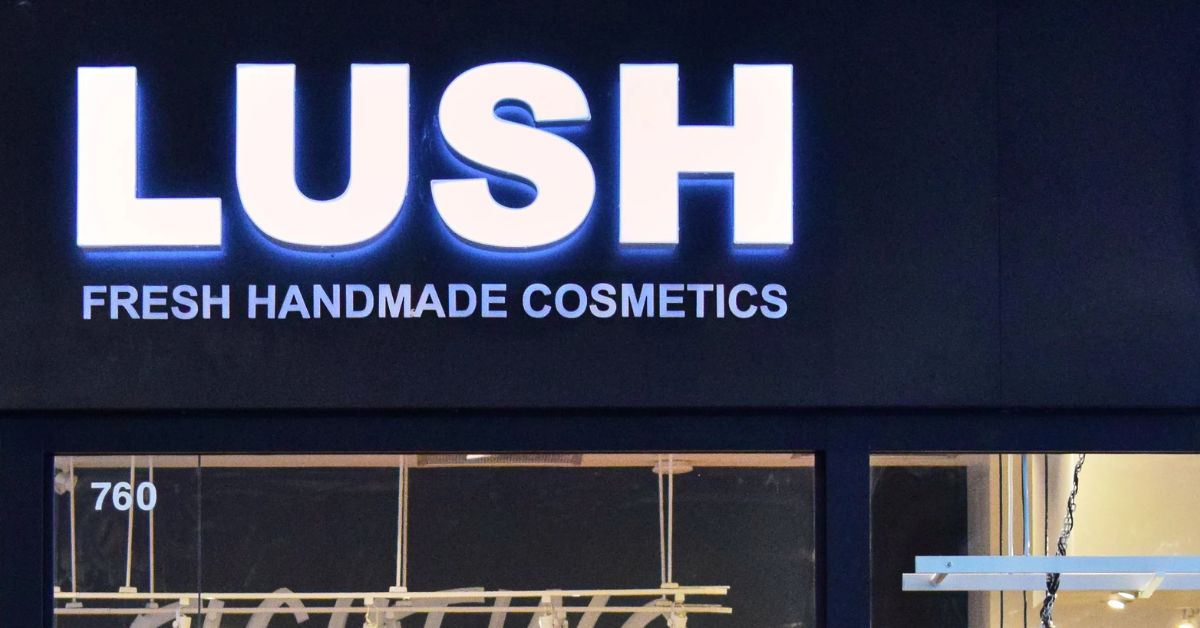A short time ago, you couldn’t go through Instagram or TikTok without seeing something from Lush. The brand’s digital presence was unbeatable, whether it was a post announcing a new line of themed products (who could forget the cheeky peach and aubergine bath bombs for Valentine’s Day?) or a hilariously self-aware parody of what it’s like to be greeted by Lush staff (hint: it’s very overwhelming).
But Lush decided a little over a year ago to stop using social media. The brand logged out of its accounts on TikTok, Instagram, Snapchat, and Facebook because it was “worried about the serious effects of social media,” especially on mental health.
In a press release, the brand said that some social media platforms are “starting to feel like places no one should be encouraged to go” and promised to leave “until the platforms take action to make a safer environment for users.” In the statement, Mark Constantine, who helped start Lush, said:
“I’ve spent my whole life making sure that my products don’t contain anything bad. There is now a lot of proof that when we use social media, we put ourselves in danger. I don’t want to put my customers in danger like this, so it’s time to get rid of it.”
Fans of Lush are still on social media, of course, and The Drum reported in November 2022 that Lush said it doesn’t regret the move. But in a crowded beauty market where brands are always trying to stay relevant, was the decision to leave social media the big, admirable statement it was meant to be?
Is Lush Still Relevant?
Fans have been asking, “What happened to Lush?” since then, which is not a surprise. In a recent video that went viral with the title “skincare brands I’m 99.9% sure nobody uses anymore,” beauty blogger Maddie Evans started by talking about the “elephant in the room,” which was Lush skincare. “But in all honesty, I don’t know if anyone still uses this. I feel like everyone was totally into this, like everyone was using Lush skincare, masks, and everything else.”
On Twitter, the same thing is going on. One Twitter user replied to a recent post that said Lush had closed some stores by saying, “I almost forgot Lush existed.” When a follower said that the brand had missed the mark by going offline, another said, “I forgot about Lush, so the fact that you brought it up shows how little they use social media.”
My beauty and self-care-obsessed friends haven’t been to a Lush store in years, according to a quick survey. So, is it because Lush doesn’t have a social media presence that the brand isn’t known? Kate Johnson is the founder and director of the social media marketing agency Rate Social.
She says that social media gets a lot of bad press for being harmful, but she thinks that the real problem is how people use it. Kate says, “Whether Lush is on social media or not, its customers are.” “The brand seems condescending and out of touch when it tells people to ‘Be Somewhere Else.”
Kate thinks that Lush has stopped caring about its fans, which is strange since social media is a place to connect. Kate says that 60% of Gen Z users and 52% of millennial users have bought something they saw on TikTok in the past year.
Before I logged out, the brand and each of its stores had a big presence on TikTok. “Lush has become disconnected from its consumers,” continues Kate, adding that the brand’s social media profiles – which remain active – have become a “cesspit of unanswered complaints, bots and genuine enquiries”.

More Latest News:
- Lauren London Talks About The Awkward First Time She Met Jonah Hill
- Video Shows That After A Traffic Stop, Police Kicked, Pepper Sprayed, And Beat Tyre Nichols
Is Lush skincare any good?
